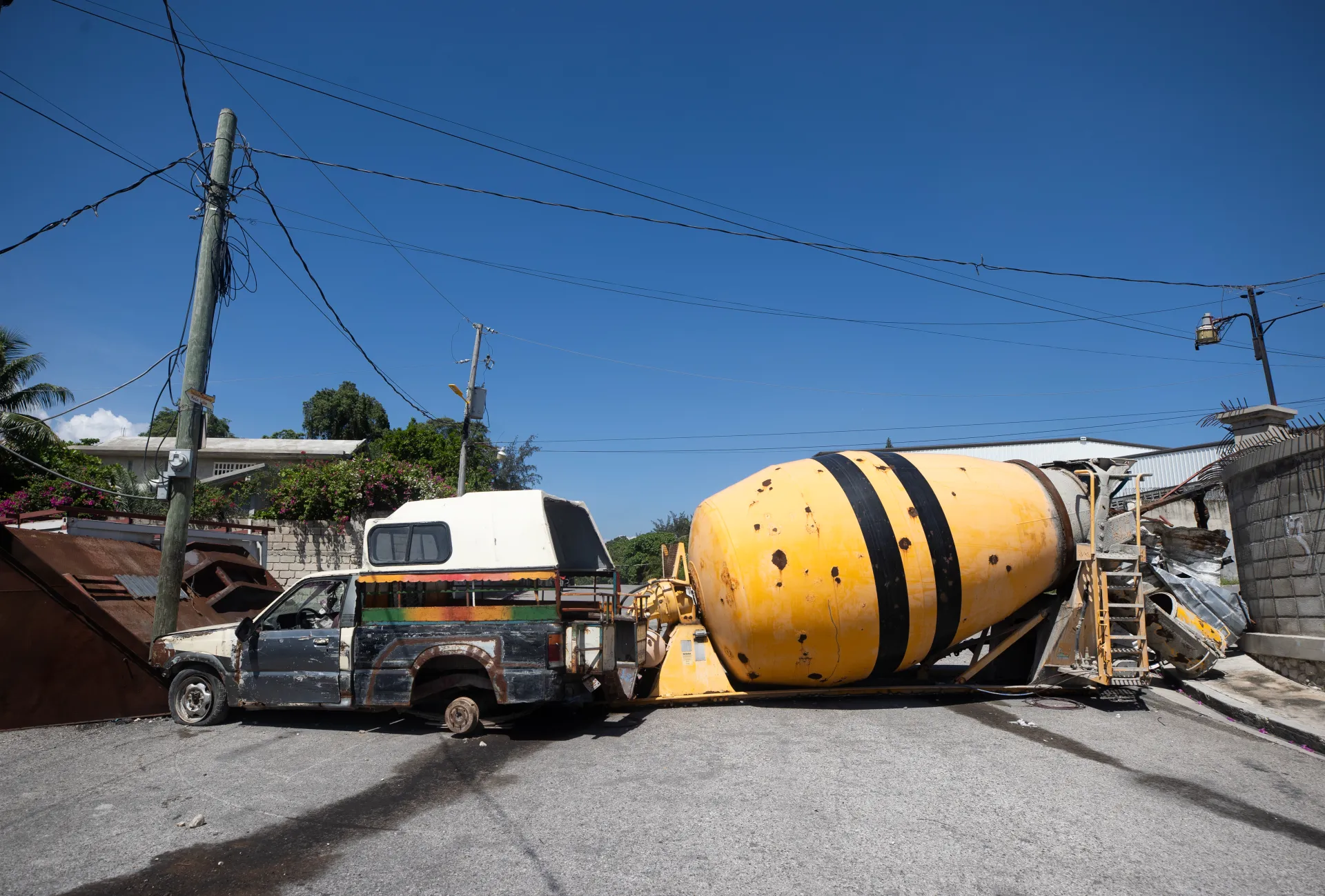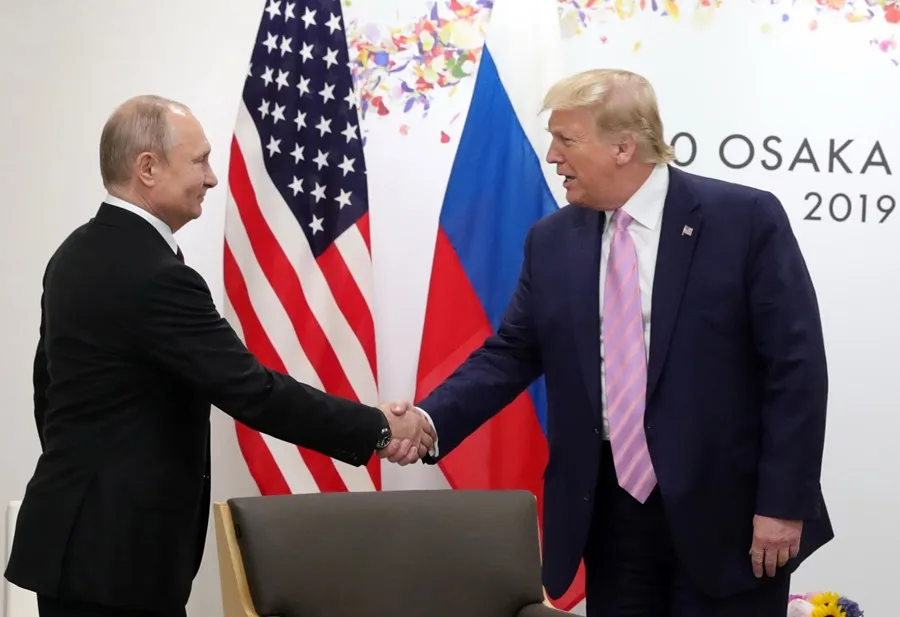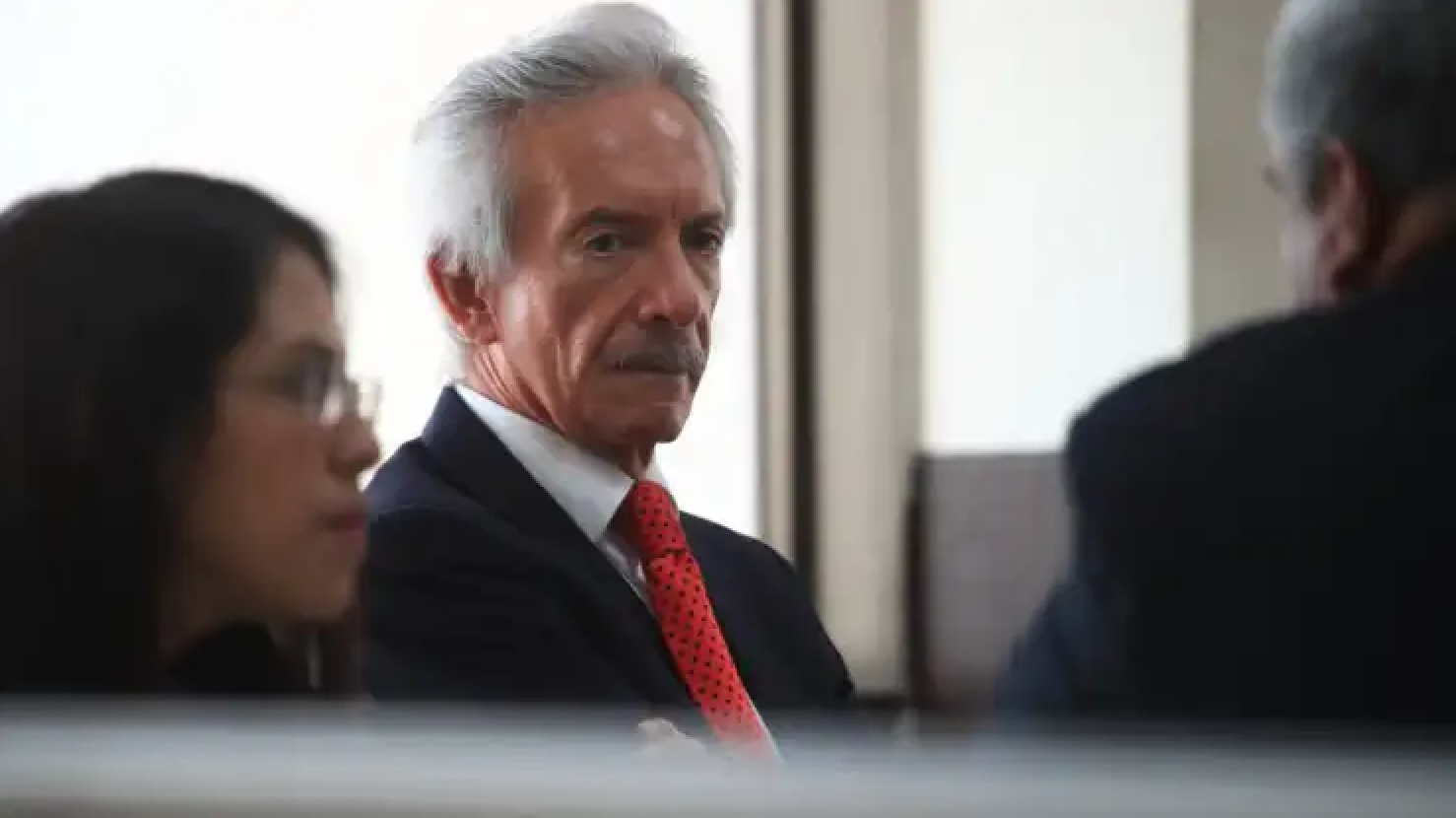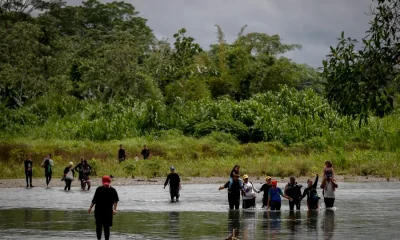International
Neighbors block streets in Port-au-Prince to protect themselves and prevent the entry of gangs

Many streets of Port-au-Prince are blocked with cars and trucks, with all kinds of objects that neighbors place to prevent the entry of armed gangs into their neighborhoods.
This is the situation that EFE found in the capital areas of Delmas 31 and Delmas 33, where the president of a neighborhood board, James Polimo, explained that it is the way they have to “self-protect” from gang violence, their attacks, killings, rapes and kidnappings.
According to Polimo to EFE, although in his neighborhood as such there are no gangs nearby, they are protected because recently members of armed groups tried to kidnap a person who works in the area.
The inhabitants, when they realized, had to cut the streets “so that they didn’t fall on him.”
Those blockages give the neighbors a greater sense of security and, he added, “although they are not one hundred percent protected, they feel safer than on the other side of the barrier.”
“Here 50 percent can sleep at night because they feel protected,” Polimo said in the face of extreme insecurity in the metropolitan area of Port-au-Prince, largely under the control of gangs and in the midst of violence that has forced thousands of people to leave their homes and become displaced people within the city or to flee to other areas of the country or abroad.
Despite the difficulties that the cutting of streets entails for the neighbors when it comes to accessing the neighborhood, they don’t care because “when they enter, they feel safer than outside.”
He added that, if a member of the gangs decided to enter his neighborhood, “he could not be there for more than three minutes because the neighbors would catch him.”
When asked about how he sees the next deployment of the multinational security support mission, led by Kenya and approved by the UN, Polimo assured that it will be welcome, but considers that “the problem of Haiti is the same Haitians, who have to be together to be able to give security to the country and solve the problems.”
In his opinion, international troops come to Haiti to protect the country, but “we are the ones who have to stand ahead” when it comes to resolving the situation.
In early May, the Minister of Foreign Affairs of the Bahamas, Fred Mitchell, whose country will also send troops to Haiti, announced that the deployment of the multinational mission to restore security would begin on the 26th of this month.
Biden received Kenyan President William Ruto, on Thursday at the White House, and in fact raised the level of the bilateral alliance by designating the African country as a ‘main ally outside NATO’ for its leadership in that mission that will be deployed in Haiti.
At a press conference, Biden promised logistical support to the multinational security mission, but reiterated that the United States will not send soldiers to Haiti.
For the deployment of that force, which will be composed of about 2,500 members from countries from different continents, the Biden Administration committed 300 million dollars and calculated that the mission will have an annual cost of between 500 and 600 million, so it has pressured its allies to make more contributions.
The political, social and economic crisis and the escalation of violence have resulted in numerous changes in Haiti, with consequences such as Henry’s resignation and the creation of a Transitional Presidential Council, which should lead to the holding of presidential elections.
Last year alone, the violence caused 8,000 victims in Haiti, where the gangs control much of Port-au-Prince and other areas of the country.
International
Trump urges Putin to reach peace deal

On Monday, U.S. President Donald Trump reiterated his desire for Russian President Vladimir Putin to “reach a deal” to end the war in Ukraine, while also reaffirming his willingness to impose sanctions on Russia.
“I want to see him reach an agreement to prevent Russian, Ukrainian, and other people from dying,” Trump stated during a press conference in the Oval Office at the White House.
“I think he will. I don’t want to have to impose secondary tariffs on Russian oil,” the Republican leader added, recalling that he had already taken similar measures against Venezuela by sanctioning buyers of the South American country’s crude oil.
Trump also reiterated his frustration over Ukraine’s resistance to an agreement that would allow the United States to exploit natural resources in the country—a condition he set in negotiations to end the war.
International
Deportation flight lands in Venezuela; government denies criminal gang links

A flight carrying 175 Venezuelan migrants deported from the United States arrived in Caracas on Sunday. This marks the third group to return since repatriation flights resumed a week ago, and among them is an alleged member of a criminal organization, according to Venezuelan authorities.
Unlike previous flights operated by the Venezuelan state airline Conviasa, this time, an aircraft from the U.S. airline Eastern landed at Maiquetía Airport, on the outskirts of Caracas, shortly after 2:00 p.m. with the deportees.
Interior Minister Diosdado Cabello, who welcomed the returnees at the airport, stated that the 175 repatriated individuals were coming back “after being subjected, like all Venezuelans, to persecution” and dismissed claims that they belonged to the criminal organization El Tren de Aragua.
However, Cabello confirmed that “for the first time in these flights we have been carrying out, someone of significance wanted by Venezuelan justice has arrived, and he is not from El Tren de Aragua.” Instead, he belongs to a gang operating in the state of Trujillo. The minister did not disclose the individual’s identity or provide details on where he would be taken.
International
Son of journalist José Rubén Zamora condemns father’s return to prison as “illegal”

The son of renowned journalist José Rubén Zamora Marroquín, José Carlos Zamora, has denounced as “illegal” the court order that sent his father back to a Guatemalan prison on March 3, after already spending 819 days behind barsover a highly irregular money laundering case.
“My father’s return to prison was based on an arbitrary and illegal ruling. It is also alarming that the judge who had granted him house arrest received threats,” José Carlos Zamora told EFE in an interview on Saturday.
The 67-year-old journalist was sent back to prison inside the Mariscal Zavala military barracks on March 3, when Judge Erick García upheld a Court of Appeals ruling that overturned the house arrest granted to him in October. Zamora had already spent 819 days in prison over an alleged money laundering case.
His son condemned the situation as “unacceptable”, stating that the judge handling the case “cannot do his job in accordance with the law due to threats against his life.”
-

 Central America5 days ago
Central America5 days agoNicaragua denounces Costa Rica’s position in SICA as aligned with foreign interests
-

 Central America5 days ago
Central America5 days agoNicaragua’s new judicial law consolidates power in Ortega and Murillo’s hands
-

 Central America5 days ago
Central America5 days agoPanama’s president declares Darién gap ‘closed’ amid sharp drop in migrant flow
-

 International3 days ago
International3 days agoSon of journalist José Rubén Zamora condemns father’s return to prison as “illegal”
-

 International5 days ago
International5 days agoMarco Rubio warns Venezuela against military action against Guyana
-

 International3 days ago
International3 days agoMiyazaki’s style goes viral with AI but at what cost?
-

 Central America2 days ago
Central America2 days agoPanama police clarifies that Interpol alert for Martinelli is still pending
-

 International2 days ago
International2 days agoDeportation flight lands in Venezuela; government denies criminal gang links
-

 Central America16 hours ago
Central America16 hours agoU.S. Homeland Security Secretary urges Mexico to strengthen Guatemala border
-

 International16 hours ago
International16 hours agoTrump urges Putin to reach peace deal
-

 Central America16 hours ago
Central America16 hours agoPanama grants Martinelli 72-hour extension to travel to Nicaragua
-
Central America4 days ago
Nicaragua revokes legal status of 10 more NGOs, bringing total to over 5,600















